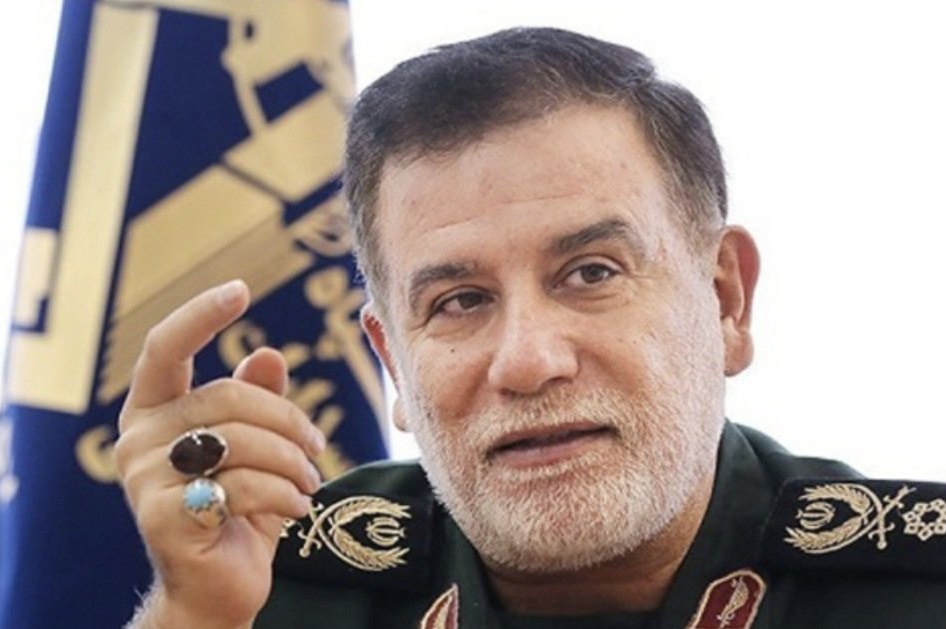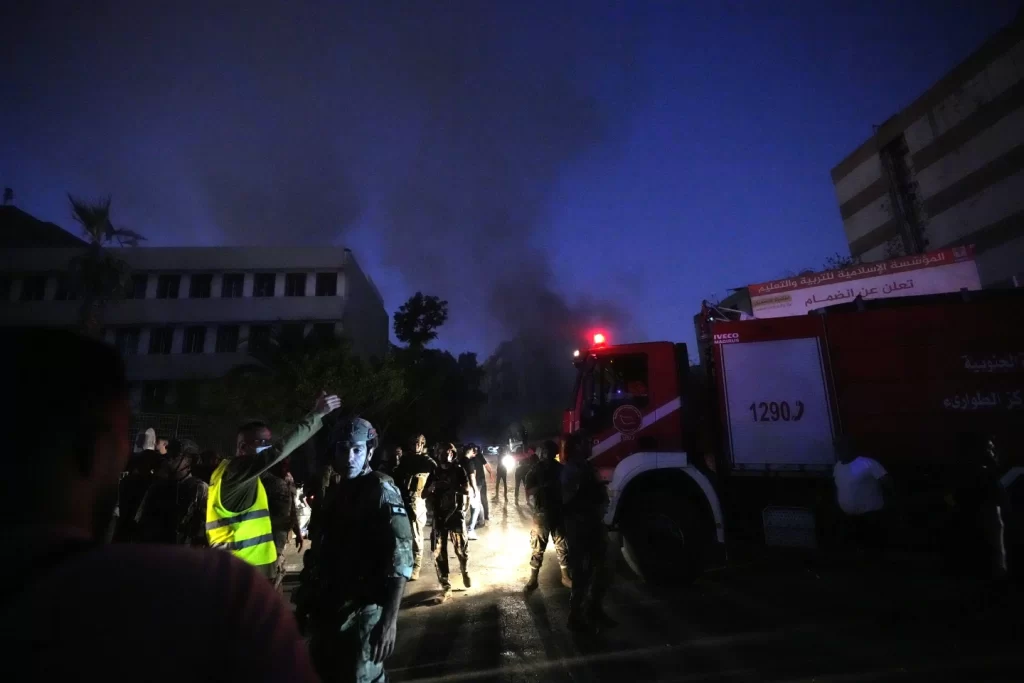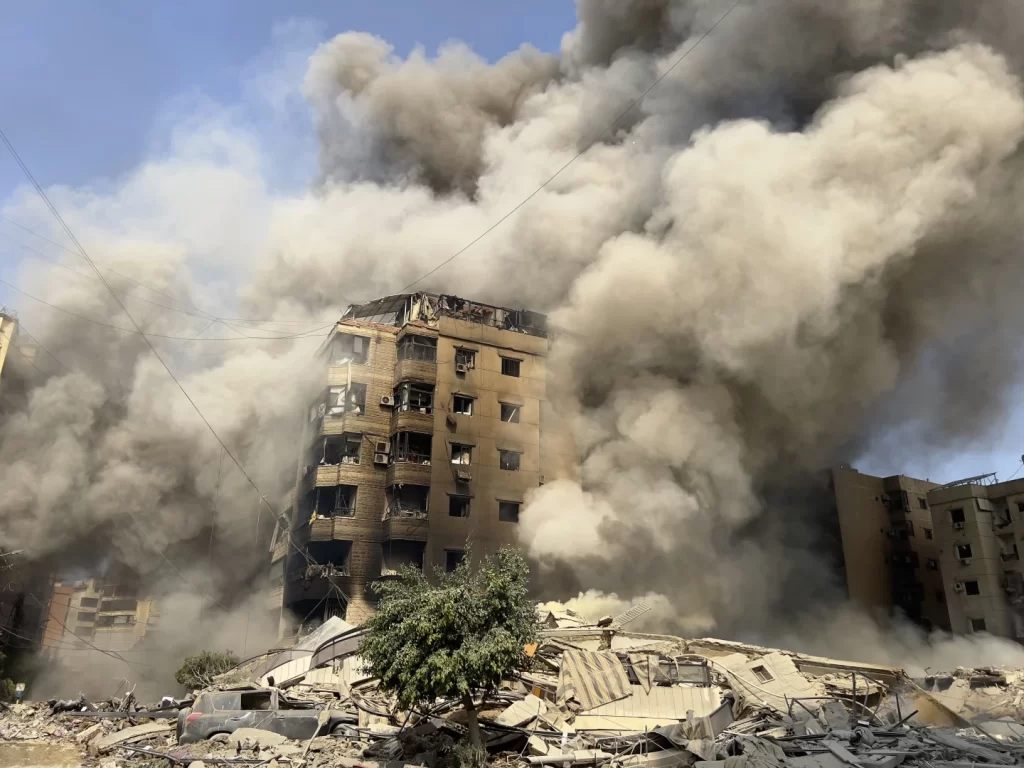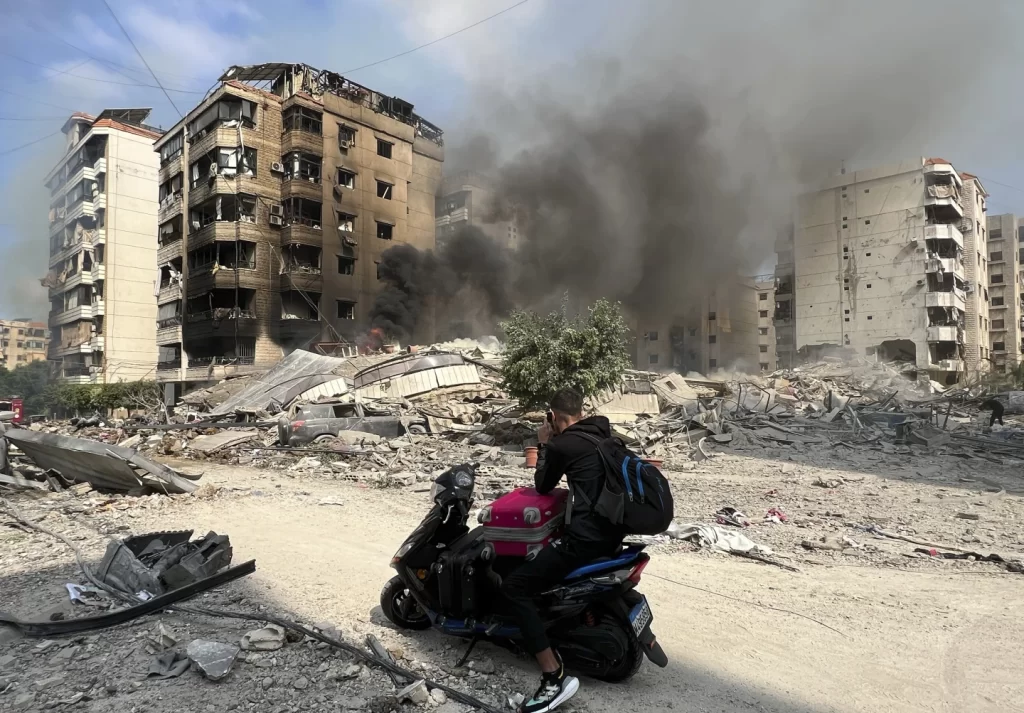Iran announced Saturday that a prominent general in its paramilitary Revolutionary Guard was killed in the same Israeli airstrike that claimed the life of Hezbollah leader Hassan Nasrallah, marking a significant escalation in regional tensions.

Abbas Nilforushan, 58, identified by the U.S. as the deputy commander for operations in the Revolutionary Guard, died in Friday’s strike on Beirut, according to Iran’s state-run IRNA news agency. Nilforushan had been sanctioned by the United States for his role in the Guard.
The dual loss of high-ranking figures in Iran’s sphere of influence sent shockwaves through the region, prompting calls for retaliation and raising fears of a wider conflict.
Iranian Supreme Leader Ayatollah Ali Khamenei responded to the deaths with a stern warning. “The resistance movement, headed by Hezbollah, will decide the fate of the region,” Khamenei said in a statement broadcast on state television.
Iran’s influential parliamentary committee on national security demanded a “strong” response to Israel following an emergency meeting. Across major Iranian cities, state TV reported anti-Israeli rallies in support of Hezbollah.

The Israeli military, while confirming the strike that killed Hezbollah’s Nasrallah, did not immediately comment on Nilforushan’s death. Lt. Col. Nadav Shoshani, an Israeli army spokesperson, said the airstrike was based on years of intelligence gathering and “real-time information,” but declined to provide specifics on the operation or civilian casualties.
Israel’s Chief of Staff, Lt. Gen. Herzi Halevi, indicated that the strike was part of a broader campaign, stating that the elimination of Nasrallah was “not the end of our toolbox.” Defense Minister Yoav Gallant went further, calling it “the most important targeted strike since the founding of the State of Israel.”
The deaths of Nasrallah and Nilforushan come amid escalating hostilities between Israel and Hezbollah, which intensified following Hamas’s attack on Israel on October 7, 2023. Hezbollah, backed by Iran, had been engaging in cross-border strikes with Israel for nearly a year.

Iraq, another country within Iran’s sphere of influence, reacted strongly to the news. Prime Minister Mohammed Shia al-Sudani declared a three-day period of mourning. Sudani, who came to power with support from Iran-backed political factions, leads a coalition with armed wings allied to Hezbollah.
The loss of Nilforushan represents a significant blow to Iran’s military leadership in the region. As deputy commander for operations in the Revolutionary Guard, he played a crucial role in Iran’s military strategy and its support for allied groups like Hezbollah.
Orna Mizrahi, a senior researcher at the Tel Aviv-based Institute for National Security Studies and former Israeli intelligence analyst, suggested that the deaths could lead to unpredictable consequences. “The biggest question mark right now is how Iran will respond,” Mizrahi said.

The Israeli strike has already triggered a series of retaliatory actions. Hezbollah launched dozens of projectiles across northern and central Israel and into the Israeli-occupied West Bank on Saturday. Meanwhile, Israel carried out over 140 airstrikes in southern Beirut and eastern Lebanon’s Bekaa Valley, including targeting a storage facility for anti-ship missiles.
The escalating conflict has taken a heavy toll on civilians. Lebanon’s health minister reported Saturday that 1,030 people — including 156 women and 87 children — have been killed in Israeli strikes in Lebanon in less than two weeks. On the Israeli side, tens of thousands have been displaced from communities near the Lebanese border.
AP



